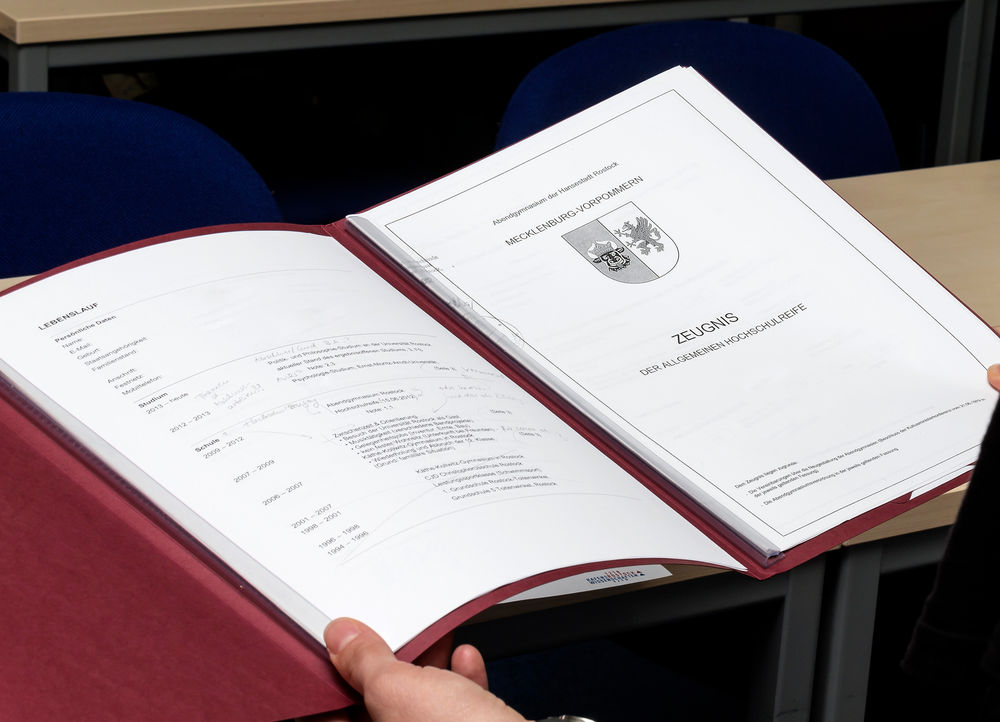Master of Education Biology

If you are aiming to work as a teacher at grammar schools or vocational schools, a teaching-related Bachelor’s degree program (such as the polyvalent two-major subject program with the option of teaching at grammar schools at the University of Freiburg) is followed by the Master of Education program. Below you will find information relevant to the Biology part of the Master of Education program at the University of Freiburg.
Information about the study program
The Master of Education at the University of Freiburg includes two academic subjects (subject-specific science and subject-specific didactics) for which your Bachelor’s degree has laid the foundations. In addition, you will study further teaching-specific components, which all teacher training students go through, regardless of their subjects. One focus is on educational science, which gives the Education degree course its name. There is also a practical semester at school.

Further information on the Master of Education (or on the non-biology-specific study components) can be found on the website of the Freiburg Advanced Center of Education (FACE).
The Faculty of Biology cooperates closely with the Freiburg University of Education, in particular with the Institute of Biology and its Didactics, as part of the Master of Education program. There is intensive cooperation in teaching in order to exchange expertise in subject-specific science at the university and expertise in subject-specific didactics at the PH. You can find out more about this under “Modules”.
Application and Admission

Applications for the Master of Education are possible online from June 1 and must be submitted for all degree programs by July 15.
General admission requirements for the Master of Education are the completion of a teaching-related Bachelor’s degree program and knowledge of the German language at level C1. The admission requirements and information on the documents to be submitted with the application by the deadline can be found in the admission regulations.
The self-reflection on teacher training and the teaching profession is aimed at students who are considering studying for a Master of Education (M.Ed.). It is intended to serve as a decision-making aid and source of information. The reflection tool offers a combination of written information, self-reflection questions and video interviews.
The first step in the application process is to register in the Campus Management System.
Please note: If you already have a UniAccount at the University of Freiburg, you do not need to register, but can log in directly with your user ID.
Then start the application for your two desired subjects and follow the instructions in the application portal. At the end of this process, you will be asked to print out and sign your application for admission to the degree program and send it together with the necessary documents to the address stated on the application.
The required documents are always the Bachelor’s certificate or, if this is not yet available, a confirmation that this degree program has been completed and with what overall grade, as well as an overview of achievements with details of individual grades and ECTS points earned. If the Bachelor’s degree program has not yet been completed, a certificate of all work already completed, including grades and details of ECTS points earned, as well as confirmation of the grading of the final thesis or of the submission or at least the registration of the final thesis must be provided.
The partial degree program is not subject to admission restrictions. Applicants who meet the admission requirements and have applied in due time and form will be admitted.
Notifications of admission and rejection will be sent out by mid-August.
Students who are already enrolled at the University of Freiburg can find information about studying biology on ILIAS at “Informationen zum Studium”.
Curriculum
To ensure that you can complete your studies in four semesters, we strongly recommend that you start your studies in the winter semester. If you start in the summer semester, we recommend that you study the modules in the order shown below or seek advice. For advice, please contact our degree program coordinator Janina Kirsch.
| Moduls | subject-specific semester | course | ECTS / Workload |
|---|---|---|---|
| Human biology | 1 | Biology of humans (seminar) | 6 ECTS / 180 h |
| Teaching human biology (seminar) | 3 ECTS / 90 h | ||
| Biodiversity and Sustainability | 2 | Ecological perspectives on sustainable development (seminar) | 3 ECTS / 90 h |
| Field ecology (exercise) | 3 ECTS / 90 h | ||
| Education for sustainable development – environmental education (seminar) | 4 ECTS / 120 h | ||
| Biotechnoloy and Molecular biology | 2 oder 4 | Tools and methods in molecular biology (exercise) | 2 ECTS / 60 h |
| 3 | Biotechnological application and discourse (exercise) | 3 ECTS / 90 h | |
| Biology didactics | 1, 2, 3 or 4 | Introduction to biology didactic research (lecture) | 3 ECTS / 90 h |
You will find important information for planning your course allocation under “Modules” and in the module guide.
Modules and courses
Tandem module “Human Biology” (subject-specific science meets subject-specific didactics)
Qualification objective of the module:
The students acquire basic, applicable knowledge of human biology. They can then justify the relevance of the content for the individual and society. They deepen their critical reflection skills and evaluate human biology topics objectively and ethically. They access current research results, also in English. They apply biological working methods relevant to school (e.g. model competence, knowledge acquisition, ethical discussion) to selected subject content. Students use the subject-specific knowledge they have acquired for the theory- and evidence-based discussion of didactic issues and concrete implementation in the classroom. Based on the general educational value of human biology content, students learn about the importance and handling of pre-concepts, fundamental aspects of diagnosis and support and the control of teaching through tasks. This is followed by the concrete design of teaching-learning sequences through the conception of challenging tasks. Courses of the module, which are coordinated with each other:
- Subject science: Human biology
- Subject didactics: Teaching human biology
Tandem module “Biodiversity & Sustainability” (subject-specific science meets subject-specific didactics)
Qualification objective of the module:
Students are able to present central concepts of sustainable development and current topics of sustainability with an ecological reference and develop them both for the subject of biology and for interdisciplinary education for sustainable development (ESD). They justify their significance for personal/social life and derive local and global options for action. Students deepen their knowledge of the topic of biodiversity by independently designing ecological excursions, which are supported by digital media and should be suitable for use in schools. Students acquire basic didactic knowledge in the field of ESD and gain exemplary insights into didactic research and judgment. Courses of the module, which are coordinated with each other:
- Subject-specific science: Ecological perspectives on sustainable development
- Subject science: Field ecology
- Subject didactics: Education for sustainable development – environmental education
Scientific module “Biotechnology & Molecular Biology”
Qualification objective of the module:
Students acquire fundamental and future-oriented knowledge in the field of biotechnology and molecular biological processes. They apply methods in the laboratory and deepen their knowledge on excursions to biotechnological areas. The students deal ethically with socially relevant molecular biological processes, discuss them and present different points of view. Courses of the module:
- Biotechnology
- Molecular Biology
Didactic module “Biology didactics”
Qualification objective of the module:
Students gain an insight into the methods of subject-specific didactic research, which differ fundamentally from subject-specific research in biology. They interpret the results of didactic research in biology and derive their significance for teaching biology. Course:
- Introduction to didactic research in biology
Module guides and examination regulations
-
Educational sciences
-
Practical semester at school
The increased professional orientation is also expressed in the 12-week school internship semester, which is usually completed in the 3rd semester of the Master’s degree course (at the start of the winter semester) and is intended to serve as preparation for the traineeship as well as professional orientation.
Master thesis
In addition to the two academic subjects, the four-semester Master of Education course focuses primarily on the teaching-specific aspects of university education. The Master’s thesis can therefore be written in one of the two subjects (subject didactics and/or subject science) or in the field of educational science.